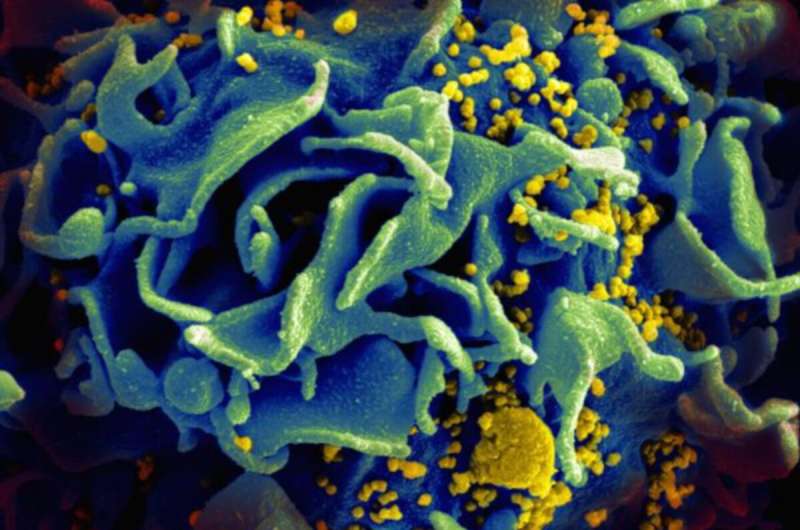NIH to fund testing and development of HIV vaccine

After decades of failing to develop an effective vaccine against HIV, the federal government has committed $129 million to a new effort led by Scripps Research.
The National Institutes of Health award was announced Wednesday. It will fund development and testing of a multistage preventive vaccine. The work will be performed by the Consortium for HIV/AIDS Vaccine Development, or CHAVD, an international collaboration.
Scripps Research scientists in La Jolla will get about half the money over the grant's seven-year life, said Dennis Burton, co-chair of the Department of Immunology and Microbiology at Scripps Research, and CHAVD's director. The rest goes to 13 other CHAVD groups, including projects at four foreign locations.
The grant from NIH's National Institute of Allergy and Infectious Diseases puts into action knowledge gained from research under a previous seven-year grant, Burton said. A series of shots is envisioned to "train" the immune system how to make powerful antibodies that neutralize a broad range of HIV strains.
"We've shown it worked in animal models. So what we have to do now is to bring that to human reality," Burton said.
This "sequential" vaccination is necessary because the immune system must be coaxed along before it can effectively fight HIV, said Dr. Anthony Fauci, NIAID's director.
"You can't just do what you do with measles vaccine, where you give a shot or two and then the body immediately makes the right kind of antibody," Fauci said.
Broadly neutralizing antibodies were discovered from the blood of those with HIV. These antibodies typically take years for the immune system to learn how to make. By that time, HIV is too well established for the body to eradicate.
The multistage vaccine is intended to compress this immune education process into several months, Burton said. It's not yet known how long the process will take, or how many stages.
"We'll have three, four or maybe five immunizations," Burton said. "But what will be in the syringe will be different each time, as we as we take the antibody response to the place we wanted to be, which is these broadly neutralizing antibodies."
The complete sequence will probably take around nine months to deliver, with doses spaced a few months apart, Burton said. The precise timing will be worked out as each stage of the vaccine is given and the immune response assessed.
Immunization to kick off the response began last September, Burton said. Results on this first stage should be available later this year.
The previous grant resulted in a cascade of discoveries about how the human immune system can defend itself against HIV.
Some of this work focused on understanding how the broadly neutralizing antibodies stop HIV. Other work concerned what needed to be done to generate these antibodies.
Studies examined if the sequential immunization approach worked in animals. Those studies were led by Bill Schief at Scripps Research and other colleagues in and outside of Scripps Research. The approach succeeded.
And a study led by Shane Crotty of the La Jolla Institute for Immunology and Scripps Research colleagues discovered that just one in 1 million "naive" antibody-making B cells are capable of becoming the type that makes broadly neutralizing antibodies. Crotty is another of CHAVD's leaders in San Diego, along with Ian Wilson of Scripps Research.
The question was whether enough of these useful B cells could be generated in most immune systems, or whether this ability was limited to a few.
The study found it was possible in most people, but that these cells required further exposure to HIV-related immune stimulants to mature them. The multistage vaccine is intended to produce this result.
Fauci said he is "cautiously optimistic," but not certain that this sequential vaccine approach will work.
"I don't know, and that's part of the mystery and the excitement of doing this kind of research," Fauci said. "I think we got the basic concepts of it right."
Fauci also praised the role played by Scripps Research. "They're one of the best in the world, so that's one of the reasons why I feel cautiously optimistic that we'll get there," Fauci said.
©2019 The San Diego Union-Tribune
Distributed by Tribune Content Agency, LLC.




















